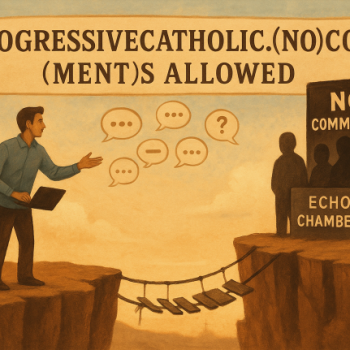GODSTUFF:
THE END OF THE WORLD IS COMING . . . WELL, EVENTUALLY
If poll results released this week are accurate, a quarter of you think it’s at least somewhat likely that Jesus Christ will return to Earth this year.
The same Associated Press/AOL News poll showed 46 percent of white evangelical Christians, 17 percent of Roman Catholics and 10 percent of those who described themselves as “nonreligious” believe Christ’s return will occur in 2007.
I happen to know a few of you who believe this and you’re not all nutjobs walking around dressed in a “The End Is Nigh” sandwich board and muttering about conspiracy theories. A couple of members of my family, in fact, are convinced that the Rapture and/or Second Coming will happen before Rosh Hashanah — the Jewish New Year — next fall.
When they tell me such things, I generally just smile and say, “OK.” When they launch into explanations of the complicated reasoning behind their timelines, I get up for another cup of coffee or excuse myself to the powder room.
Do I think Jesus is coming back? Yes. My faith and religious tradition tells me that He is.
Do I think it will be this year? Not really. Do I have any idea whether we’re living in the end of days? Nope.
And neither does anybody else.
I thought the whole point was to behave like spiritual Boy Scouts — always prepared — by living lovingly, not by peeking at the skies from behind the shutters of our metaphorical bomb shelters for evidence of Jesus’ right foot stepping through the clouds.
There are people who make a good living trying to read the signs and wonders, decipher the biblical prophecies and turn Scripture into numerical codes that can be tallied to a sum that equals the date of Jesus’ return. Take Left Behind authors Tim LaHaye and Jerry Jenkins, for instance.
Such guesstimating is a glorious waste of time. After all, in the biblical Book of Acts, Jesus Himself, when asked about His return, said: “It is not for you to know the times or periods that the Father has set by His own authority.”
But I suppose it is part of human nature — the part that got us into trouble in the first place, if my memory of the biblical account of the Garden of Eden is correct — to know the unknowable, to unveil the Big Picture.
“Over the course of Christian history, particularly in the last, oh, 500 years or so, there have been periodic attempts to determine the nearness of the end of time based on signs around us, whether it’s natural disasters or a perceived increase in sinful behavior, or evil or war,” says Craig Koester, a New Testament professor at Luther Seminary in St. Paul, Minn.
This is to be expected because the New Testament instructs readers to be watchful, expectant, Koester says. At the same time, though, Scripture warns against trying to figure out where we are in God’s timeline, he says.
Even in the Book of Revelation, the last book of the Christian Bible in which details of the so-called “end times” are revealed, “the book keeps warning readers, ‘Don’t be so confident in your ability to determine where we are in terms of God’s great plans for the world,’ ” he says.
2007 is hardly the first time some people have thought Christ’s return was imminent.
“Martin Luther expected it in the 16th century and we’re still waiting,” says David Aune, professor of New Testament and Christian Origins at the University of Notre Dame.
Chinese Christians oppressed by Mao Zedong thought Jesus would reappear in time to save them. So did some folks in the Middle Ages who determined, using some biblical arithmetic, that 1260 would be the year of Christ’s return. Even St. Paul and the earliest Christians believed they were living in the end of days and that Jesus would come back in their lifetime.
“When people are involved in this terrible thing, they just assume that’s what the Bible was talking about and what they’re experiencing is the worst thing they can imagine,” Aune says. “When things get really bad, that’s the beginning of the end.”
In the mid-19th century, a whole religious movement, known as the Millerites, grew up around a prediction made by a Baptist farmer named William Miller (who used calculations based on the biblical Book of Daniel) that Jesus Christ would return on Oct. 22, 1844.
“And when [Jesus] didn’t, that became known as ‘The Great Disappointment,’ ” Koester says.
Someone should remind Pat Robertson about great disappointments and the danger in prognosticating God’s plans. This week, the religious broadcaster reprised his role as Armageddon’s Carnac the Magnificent and issued predictions for the coming year, including a dire warning (that he says he received from God in prayer) about a “mass killing” during the second half of 2007.
Robertson doesn’t think it’ll be a nuclear bomb attack — “the Lord didn’t say ‘nuclear,'” he said on his “700 Club” television show — but probably a “very serious terrorist attack.”
I certainly hope Robertson is wrong. He’s been wrong before, but he’s also been right.
Either way, it seems to me that Robertson and his fellow predictors simply are trying to scare people into heaven, or, at the very least, frighten them into behaving themselves.
Or, as the bumper sticker says: “Jesus is coming soon. Look busy.”
© Copyright 2007 Sun-Times News Group















